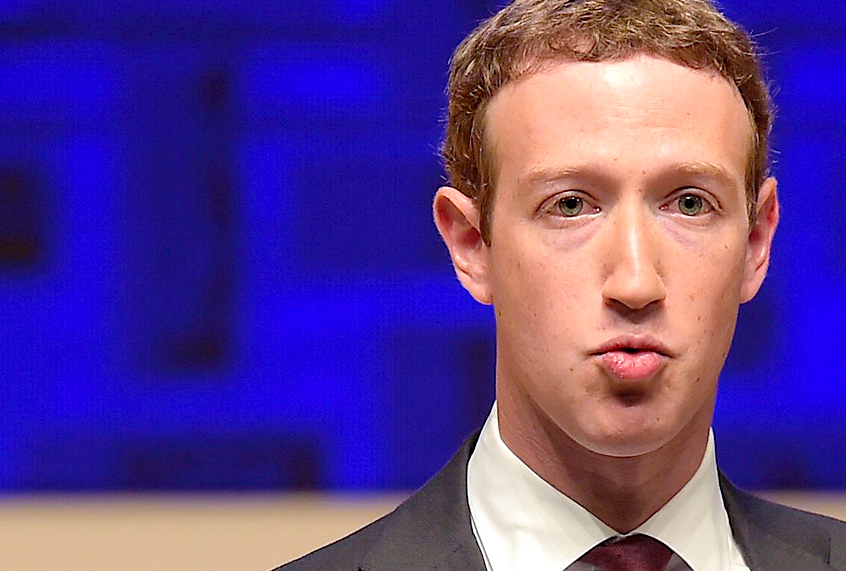Facebook has been forced to put out many fires over the last few years, many of which have come with hefty fines — like a $5 billion slap on the wrist by the Federal Trade Commission for privacy mishaps. Yet its latest forfeiture, $40 million in cash due to a lawsuit over its video metrics, is pocket change compared to the $55.3 billion in revenue that the company netted in 2018.
This most recent legal fine came about as a regulatory punishment for Facebook’s manipulations of the news industry, already vulnerable due to the contraction in ad revenues that is, in large part, Facebook’s fault in the first place.
The lawsuit in question began in October 2016 as two separate cases, but eventually combined into one lawsuit filed against Facebook. The core of the complaint regarded how Facebook calculated metrics that were being promoted to advertisers. One metric, “Average Duration of Video Viewed,” purported to represent the average number of seconds users watched a given video. A second metric, “Average Percentage of Video Viewed,” calculated the percentage of a video ad that users watched. According to the lawsuit, Facebook incorrectly calculated Average Duration of Video Viewed, misrepresenting the engagement of its videos in a way that made the platform look more appealing to video advertisers.
“The Average View Duration error, in turn, led to the Average Percentage Viewed metric also being inflated,” the complaint states. “The plaintiffs contend these errors inflated the average-watch-times shown to advertisers by several orders of magnitude. As a result, Plaintiffs allege the metrics indirectly impacted billing, since (all else being equal) advertisers are likely to pay more for video ads that are being watched longer.”
Hence, last week Facebook agreed to pay advertisers $40 million in cash for inflating video metrics the company provided to digital media platforms in 2016 and 2017. It is estimated that had the case actually gone to trial, and not settled privately, they may have recovered between $100 million and $200 million in damages.
In Facebook’s defense, the company said it corrected the error after it was discovered and made a public announcement in September 2016. Yet the plaintiffs in the federal lawsuit allege that the company’s engineers knew of the errors for over a year before the company’s public announcement.
“The average viewership metrics were not inflated by only 60%-80%; they were inflated by some 150 to 900%,” an amended complaint stated.
The result of this “error,” willful or not, was that dozens of news sites shifted their editorial strategies to encompass more video content, particularly on Facebook. Often, this came at the detriment of print journalism, both in editors and writers. “We don’t really know how much damage was done ultimately to the industry — we can sort of see it in terms of the number of lay-offs and things like that — but it’s clearly by any stretch of the imagination it’s clearly a drop-in-the-bucket, it’s pocket change, to an outfit like Facebook,” John Stanton, co-founder of the Save Journalism Project, told Salon in an interview. Stanton, a former BuzzFeed journalist, was laid off around the time that Facebook’s ad metrics fraud was in effect.
Facebook has continued to argue that the contrived metrics were an innocent mistake.
“Since the case began, [the fraud] has been fiercely contested,” the lawsuit states. “Facebook has strenuously denied many of the core allegations — in particular Plaintiffs’ allegation that the metrics error had impacted the amounts spent on Facebook advertisements — and challenged each of Plaintiffs’ legal theories.”
While Facebook sees it has a metric mishap, the damage it caused in its PR campaign to “pivot to video” shook up the media industry, and the fall-out was far, far greater than $40 million.
“Even if you can come up with a financial number for it — the number of people’s lives who have been disrupted, you can’t calculate that,” Stanton told Salon. “For me, when I was at BuzzFeed, one of the things we did was pivot to video because of the numbers were supposedly coming out of Facebook.”
Stanton said it is part of a “broader problem” regarding the power that Big Tech holds over the media industry.
“They look at the news solely as a way in which to make money and they have abandoned the traditional two-prong approach to being part of the news industry,” he said, which is traditionally to make a profit, but also make the world a better informed and protect the public. “Facebook has completely abandoned that.”
While it is hard to draw direct lines to lay-offs and Facebook’s deceptions, intentional or not, the industry has collectively been suffering in part due to big tech companies like Facebook. Jim Bankoff, CEO of Vox Media, explained in February 2018 memo— when the publication laid off 5 percent of its staff— that social video initiatives wouldn’t “be viable audience or revenue growth drivers for us relative to other investments we are making.” A report from the University of North Carolina showed that news deserts, communities that lack a local newspaper or are served primarily by “ghost newspapers,” are growing across the United States.
As Facebook bounces from lawsuit to lawsuit, settling for mere pocket change, little justice will be served, and the foundation of America’s democracy will continue to be manipulated by companies like Facebook.

